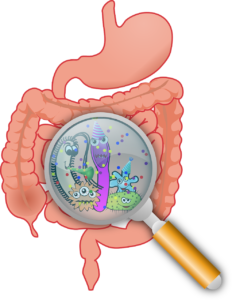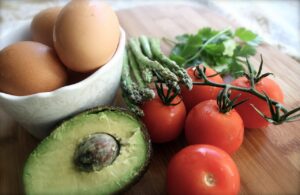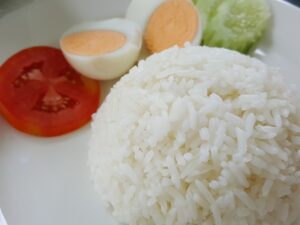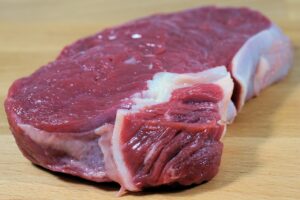The gut lining is the protective barrier that lines the digestive tract, from the mouth to the anus. It is made up of a single layer of epithelial cells that are tightly packed together, forming a physical barrier that prevents harmful substances from entering the body.
The gut lining also plays an important role in nutrient absorption and helps regulate the immune system. It contains a complex ecosystem of bacteria, fungi, and other microorganisms collectively known as the gut microbiome. The gut microbiome helps break down food and produces important nutrients like vitamins B and K.

However, the gut lining can become damaged due to factors such as poor diet, stress, infections, or certain medications. When the gut lining becomes compromised, it can lead to a condition called leaky gut syndrome, where harmful substances like toxins, bacteria, and undigested food particles can pass through the gut lining and enter the bloodstream, triggering an immune response and leading to inflammation.
To maintain a healthy gut lining, it’s important to eat a balanced diet rich in fiber, fermented foods, and other gut-friendly foods, manage stress levels, avoid excessive use of antibiotics and other medications, and get enough sleep and exercise.
WHAT HAPPENS WHEN GUT BARRIER IS BROKEN
Leaky gut syndrome is a condition where the lining of the intestinal wall becomes more permeable than normal, allowing undigested food particles, toxins, and other harmful substances to leak into the bloodstream. Here are some common signs and symptoms of leaky gut:
- Digestive issues such as bloating, gas, diarrhea, or constipation
- Food allergies or intolerances
- Chronic fatigue or low energy levels
- Skin rashes or eczema
- Joint pain or stiffness
- Mood disorders such as anxiety, depression, or irritability
- Autoimmune diseases such as lupus, rheumatoid arthritis, or celiac disease
- Brain fog or difficulty concentrating
- Hormonal imbalances such as thyroid disorders or irregular menstrual cycles
- Nutrient deficiencies due to malabsorption.
It’s important to note that some of these symptoms may also be related to other health conditions, so it’s important to consult with a healthcare professional for proper diagnosis and treatment.
Here are some foods that may be helpful for those with leaky gut:
BONE BROTH
Bone broth is rich in collagen and amino acids, which can help heal and seal the gut lining.
FERMENTED FOODS

Fermented foods like sauerkraut, kimchi, kefir, and kombucha contain beneficial bacteria that can help improve gut health.
VEGETABLES

Vegetables, especially dark leafy greens, are high in fiber and antioxidants, which can help reduce inflammation and support a healthy gut.
-
Leafy Greens – Kale, spinach, collard greens, and Swiss chard are excellent sources of vitamins, minerals, and antioxidants that can support gut health.
-
Broccoli – Broccoli is a cruciferous vegetable that is high in fiber, antioxidants, and anti-inflammatory compounds, making it an excellent choice for healing leaky gut.
-
Zucchini – Zucchini is a low-carbohydrate vegetable that is rich in fiber, vitamin C, and potassium. It is also easy to digest and can help soothe inflamed gut tissues.
-
Carrots – Carrots are a great source of beta-carotene, which is converted into vitamin A in the body. Vitamin A is essential for maintaining the health of the gut lining.
-
Sweet Potatoes – Sweet potatoes are a good source of fiber, vitamins, and minerals, including vitamin A and potassium, which can help heal the gut and reduce inflammation.
-
Asparagus – Asparagus is a low-carbohydrate vegetable that is high in fiber, vitamins, and minerals. It also contains a prebiotic fiber called inulin that can support the growth of beneficial gut bacteria.
-
Leafy Greens – Kale, spinach, collard greens, and Swiss chard are excellent sources of vitamins, minerals, and antioxidants that can support gut health.
-
Broccoli – Broccoli is a cruciferous vegetable that is high in fiber, antioxidants, and anti-inflammatory compounds, making it an excellent choice for healing leaky gut.
-
Zucchini – Zucchini is a low-carbohydrate vegetable that is rich in fiber, vitamin C, and potassium. It is also easy to digest and can help soothe inflamed gut tissues.
-
Carrots – Carrots are a great source of beta-carotene, which is converted into vitamin A in the body. Vitamin A is essential for maintaining the health of the gut lining.
-
Sweet Potatoes – Sweet potatoes are a good source of fiber, vitamins, and minerals, including vitamin A and potassium, which can help heal the gut and reduce inflammation.
-
Asparagus – Asparagus is a low-carbohydrate vegetable that is high in fiber, vitamins, and minerals. It also contains a prebiotic fiber called inulin that can support the growth of beneficial gut bacteria.
HEALTHY FATS

Healthy fats like avocado, nuts, seeds, and olive oil can help reduce inflammation and support gut health.
OMEGA-3 FATTY ACIDS

Omega-3 fatty acids, found in fatty fish like salmon, can help reduce inflammation and support gut health.
-
Fatty Fish – Salmon, mackerel, sardines, and herring are all rich in omega-3 fatty acids. These fish are also a good source of protein, vitamins, and minerals that can support overall health.
-
Chia Seeds – Chia seeds are a plant-based source of omega-3 fatty acids. They are also high in fiber, antioxidants, and minerals, making them an excellent addition to a gut-healthy diet.
-
Flax Seeds – Flax seeds are another plant-based source of omega-3 fatty acids. They are also rich in fiber, lignans, and antioxidants, which can help reduce inflammation and support gut health.
-
Walnuts – Walnuts are a good source of omega-3 fatty acids, as well as protein, fiber, and minerals. They are also high in antioxidants that can help protect against inflammation.
-
Hemp Seeds – Hemp seeds are a plant-based source of omega-3 fatty acids, as well as protein and fiber. They are also a good source of minerals, such as magnesium, which can help relax the muscles in the gut and reduce inflammation.
GLUTEN FREE GRAINS

Gluten can be difficult to digest and can exacerbate leaky gut symptoms, so opting for gluten-free grains like quinoa, rice, and oats can be helpful.
BONE-IN MEAT

Bone-in meat contains collagen and gelatin, which can help support gut health and reduce inflammation.
PROBIOTICS FOR GUT
Probiotic supplements and probiotic in food can help restore the balance of beneficial bacteria in the gut, which can improve gut health.
